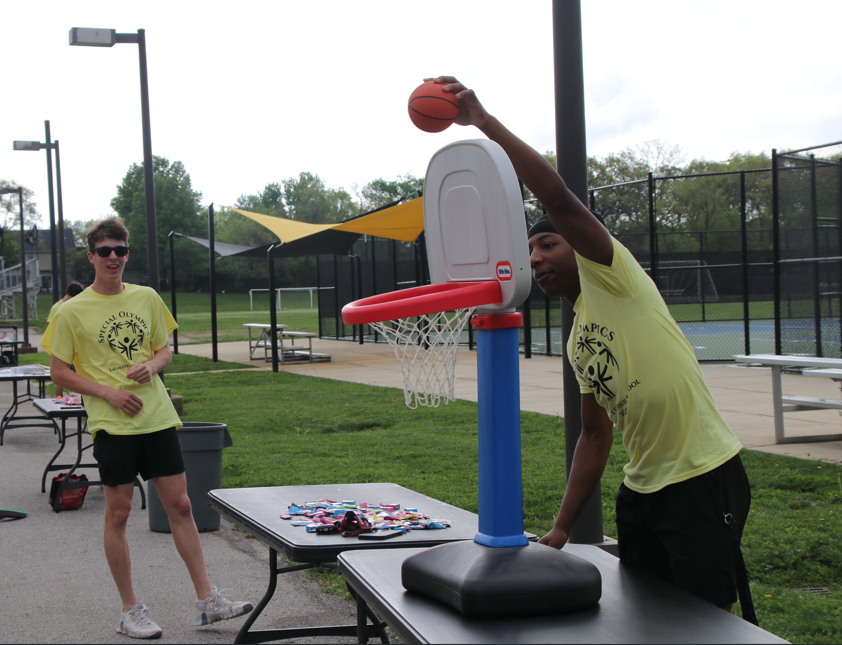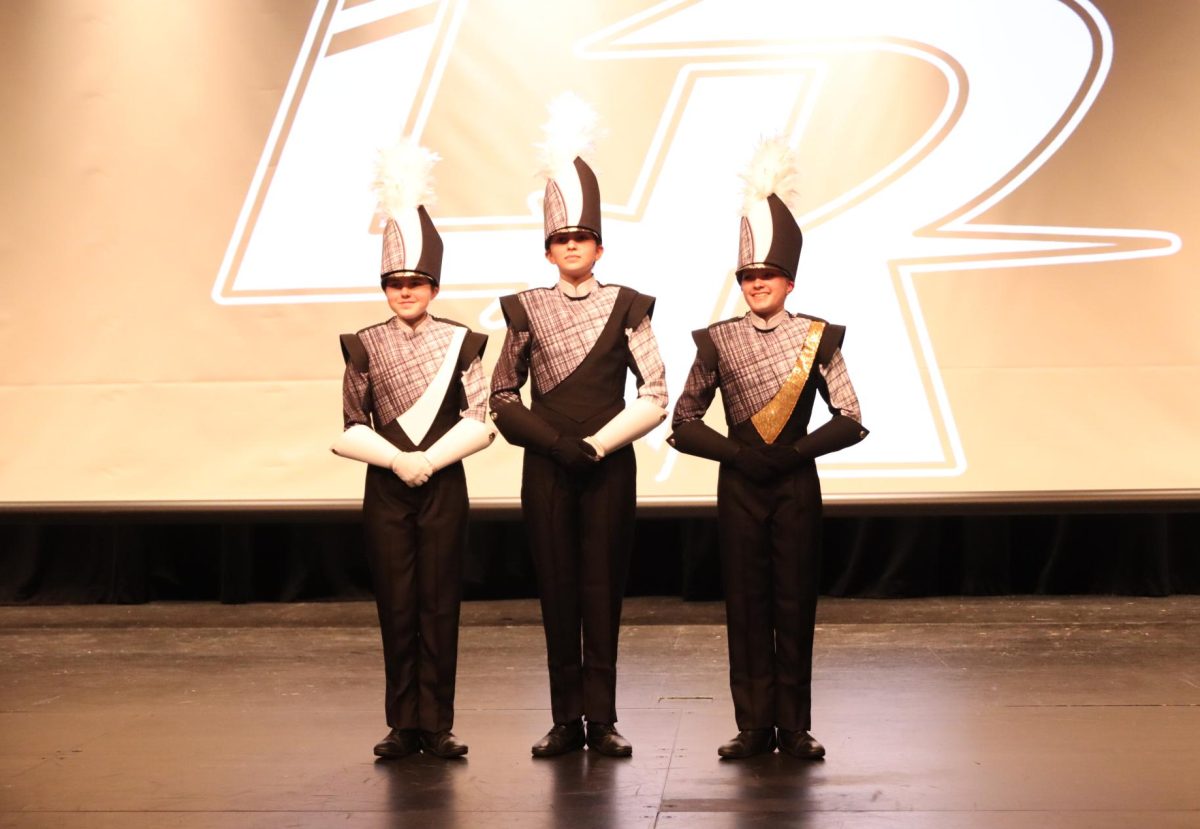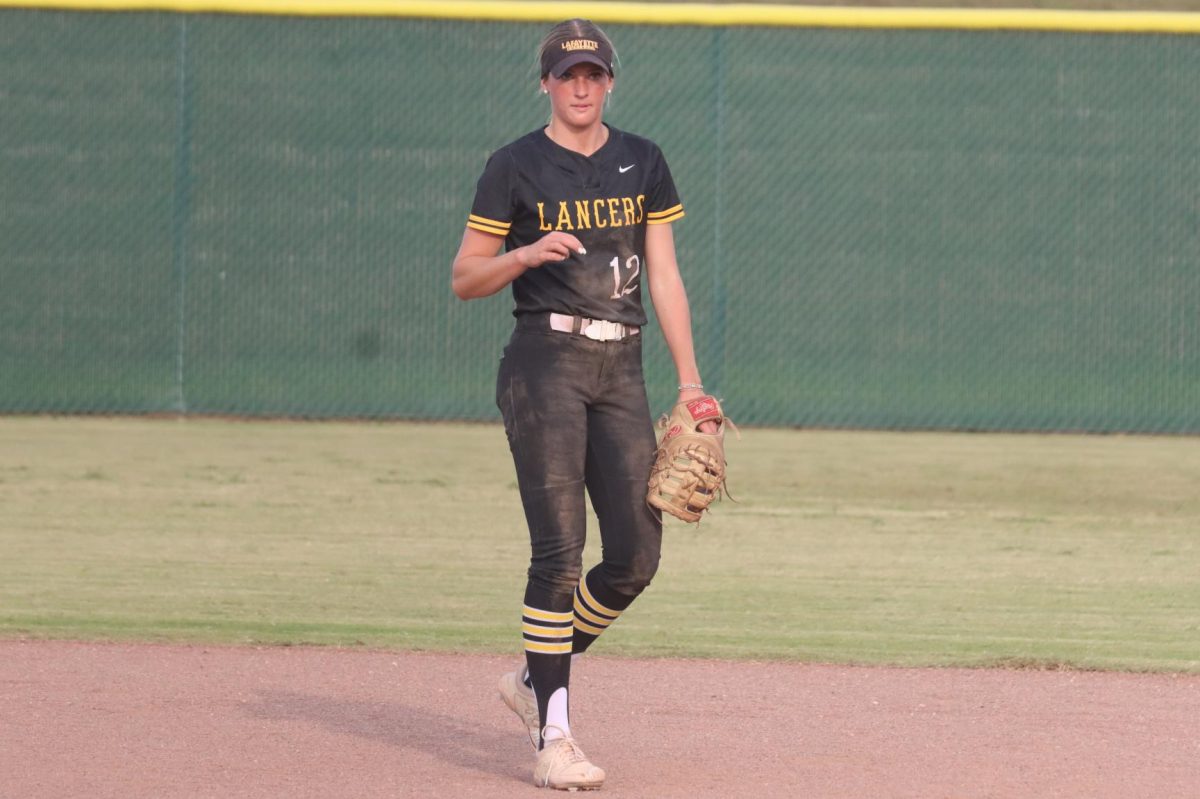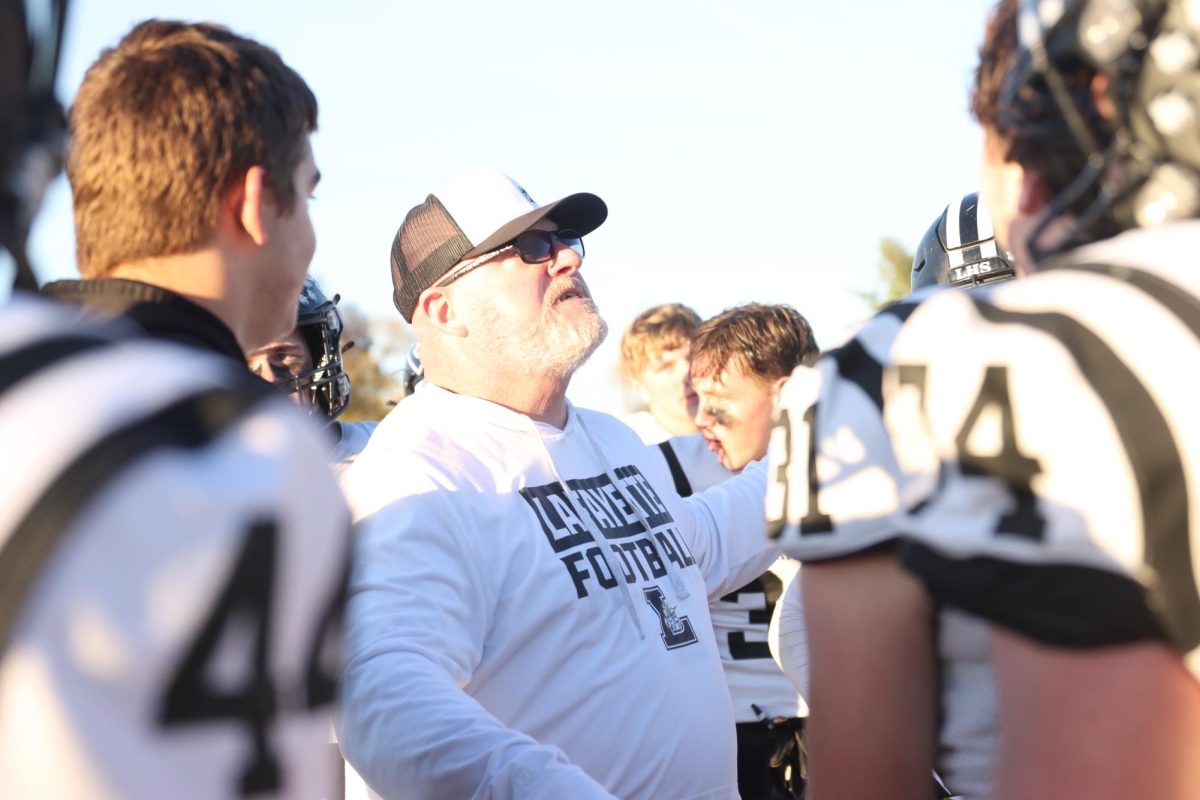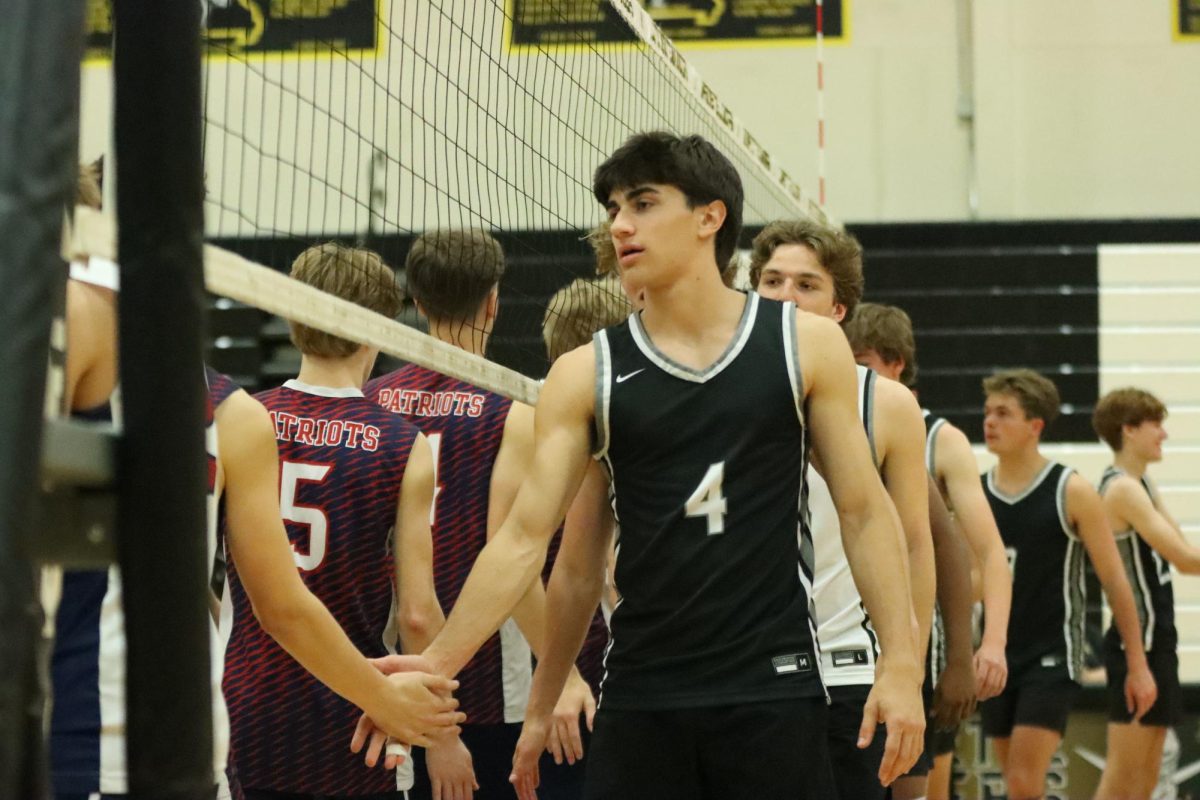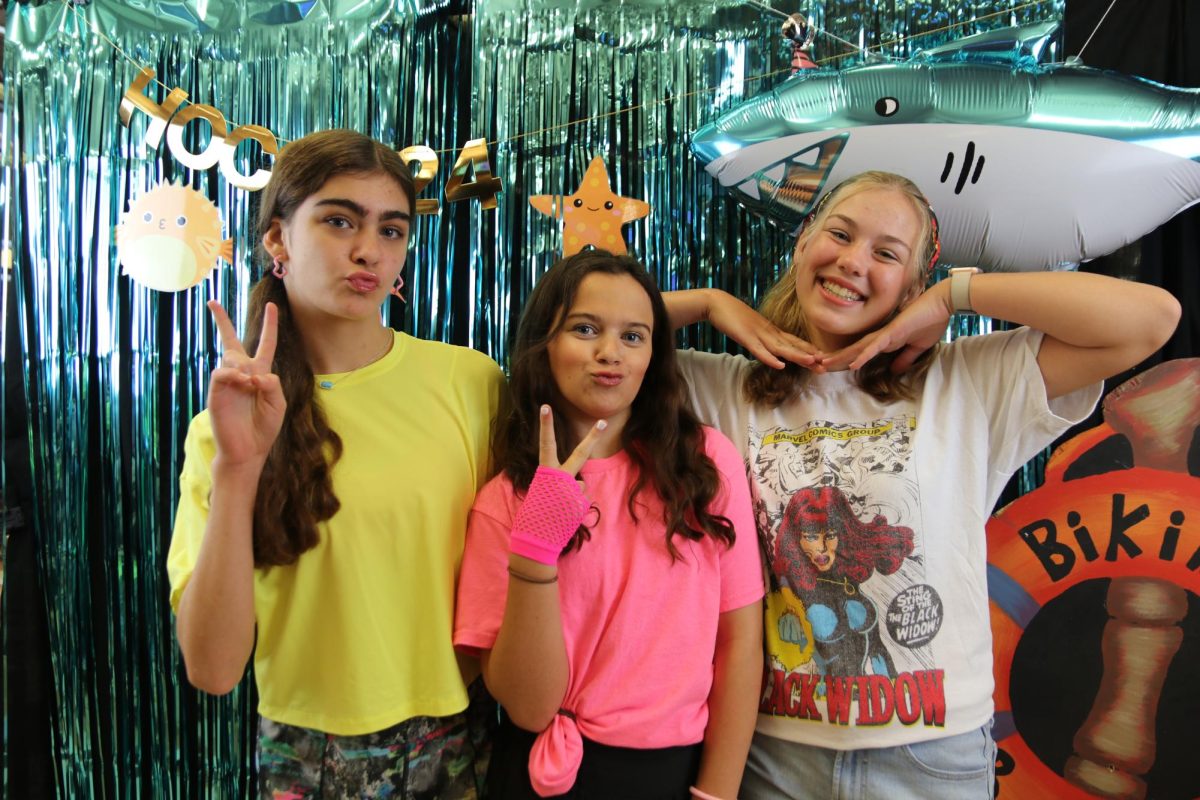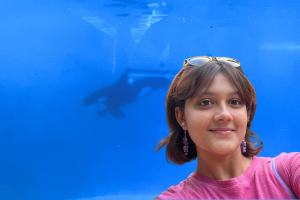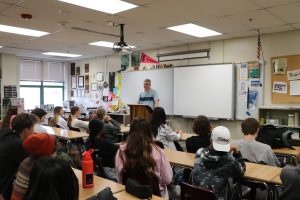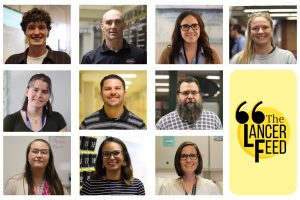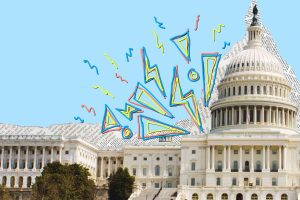Take it From Me: Lauren Weibert
Class of 2007 alumni overcomes challenges through snowboarding, attends Deaflympics
Photo by Hugh Carey, photo courtesy of Lauren Weibert
Class of 2007 alumni Lauren Weibert wins first place for Slopestyle at the 2019 Deaflympics in Italy. Weibert has held her title since 2015, having won gold in Slopestyle at her first Deaflympics in Russia as well.
December 20, 2021
Her jacket tucked in towards her, the wind pushed feverishly against the floor. With every glide, her body shifted and swayed, leaving a trail of sugar-like snow in her tracks. The nose of the board held its breath, the moment froze with the air until the snowboard softly met the bottom of the slope in yet another successful run.
Class of 2007 graduate Lauren Weibert has been snowboarding since she was in 7th Grade, starting her career on a spring break trip at Heavenly Ski Resort in South Lake Tahoe, California. Weibert has since revolved her life around snowboarding, currently going into her 19th season of the sport.
Weibert has been deaf since she was born. Born in Arizona, Weibert and her family moved to St. Louis so she could attend a school that would help her adjust to hearing aids.
“It was genetic, but the wild thing is we have no documented history of anyone in our family being deaf. More than 90% of deaf kids are born to hearing parents, and this was the late ‘80s, so there weren’t a lot of resources for hearing parents raising a deaf child,” Weibert said.
Weibert attended Central Institute for the Deaf and Saint Joseph Institute for the Deaf before switching to mainstreaming in 5th grade, where she spent half the day at Ellisville Elementary and half at a specialized school for deaf people. During a field trip to Hidden Valley her 5th Grade year, Weibert was taught how to ski and began building an interest in snowboarding.
“When I started going to Ellisville full-time in 5th grade, it was easy because I basically had one teacher all day except for art class and gym. My teacher knew a little sign language and that helped a lot when we would correct multiple-choice answers in class because when reading lips, C and D look very similar,” she said.
Throughout middle and high school, school work for Weibert became progressively more difficult and draining. Though she had a sign language interpreter, she was not fluent and had to concentrate on lipreading in order to understand the material. As a destressing mechanism from her school days, Weibert would look to snowboarding.
“Once snowboarding came into my life, it was a great way to forget about the day and recover mentally. Snowboarding always revived me,” she said. “At the time, Hidden Valley was open until 9 p.m. on weekdays, a dream come true for me. I would go straight there after school, changing in my car to snowboard. I had a Sidekick phone and it made it easy for me to write my papers and stuff while on the chairlift in between laps.”
While in school, Weibert found another way to relax through art. Former Art Department Chair Pam Senti and her son, graphic design teacher Bill Senti, who is now a principal in another school district, were influential for her and provided an escape from the other challenges in her day.
“Creativity is how I restore myself, which is why I love snowboarding because there are no rules in snowboarding and you can be creative on the slopes as well as on a physical canvas. Like snowboarding, I always felt refreshed after my art classes and being encouraged to get creative. To this day, I still keep up some of my practices that Pam encouraged me to do back in high school,” Weibert said.
After graduating from Lafayette, Weibert decided to attend California State University at Northridge because of its deaf student population and because it was 70 miles away from Mountain High Resort. However, as she was unsure what she wanted to major in and was taking general education classes, she made the decision to move to Colorado to further her passion.
“In July of 2008, I decided to take a break, move to Summit County, Colorado, and see where my snowboarding would take me. At the time, there were so many free local competitions to enter, a lot of rail jams and a few Slopestyle events, both jumps and rails. Those proved excellent in helping me develop my park skills, allowing me to step out of my comfort zone and try new tricks,” she said.
While in Colorado, Weibert learned about an event called the Winter Deaflympics. The Deaflympics is an international event specialized for athletes who are deaf. Though she was accepted into the 2011 snowboarding team, it ended up being canceled before the athletes could compete. Four years later, another Deaflympics was planned to take place. While the news was initially exciting for Weibert, an injury to her knee soon became an obstacle to the upcoming competition.
“I tore my meniscus in my knee while shoveling snow in early December of 2013. I had surgery to fully repair it and luckily, was back snowboarding again that following March 2014 after working hard with my physical therapy. I had to film a mini-edit showing what I could do to try to make the team again and the snow was so slushy and soft it was hard on my knee, but I managed to get some tricks on film and made the 2015 Deaflympics team once again,” she said.
Taking place in Khanty-Mansiysk, Russia, Weibert said it was overwhelming to be surrounded by deaf athletes from around the world for the first time.
“I loved meeting everyone. In my years of competition, I was always the only deaf athlete and it was always hard for me to get information, like when is practice over, is the actual competition happening now, is the competition over and who the heck won at awards? At the Deaflympics, I knew exactly what was happening all the way through the Games. We also had Universal Sign Language which we used to communicate with athletes from different countries,” she said.
The event was a completely new experience for Weibert that helped her persevere even further.
“My first Deaflympics was a huge confidence booster for me. Not only did I fundraise my way to the Games on my own, but I won gold in Slopestyle snowboarding and silver in Boardercross. It made me feel like I could continue my success outside of the Deaflympics. At this time, I also put myself back in college at Colorado Mountain College and I eventually graduated with a bachelor’s in Sustainability Studies, with a 3.9 GPA. I was very proud of that because I never had good grades in high school,” she said.
In 2019, Weibert attended the Deaflympics hosted by Italy and took home a silver medal in the Big Air event and a gold medal in Slopestyle. Though the Deaflympics have been exciting experiences for her, she does wish it had similar popularity to the Olympics and Paralympics.
“Honestly, I go to the Deaflympics for fun, because snowboarding is fun. Deaflympians do not receive recognition for their success while Olympians and Paralympians do, even though the International Olympic Committee recognizes the Deaflympics. It honestly makes me feel less of a person when I see the Olympians and Paralympians celebrating “equality” while leaving Deaflympians in the shadows,” she said.
Weibert continues to snowboard and learns new tricks for future competitions. Reflecting on her high school years, Weibert said Khan Academy was her most helpful resource when studying.
“Thanks to Khan Academy, for the first time in my life, I got As in math and chemistry, and could even balance chemical equations, something I never could do back in high school,” Weibert said.
Having overcome her obstacles and continued her passion for snowboarding, Weibert said an important priority for students who are working to better themselves is to never give up, especially under difficult circumstances.
“If you truly love something, you’ll do whatever it takes to make it work. It’s not easy for most people to live in a mountain town, but the access to snowboarding and all the other fun off-season activities makes it all worth it,” she said. “ If you need accommodations, don’t be afraid to request them. You know what you need to succeed, so make sure you are set up for success. One thing that has helped me was having PowerPoint presentations printed out for me in advance, so I can follow along with the lesson and make notes on the sides as needed.”




